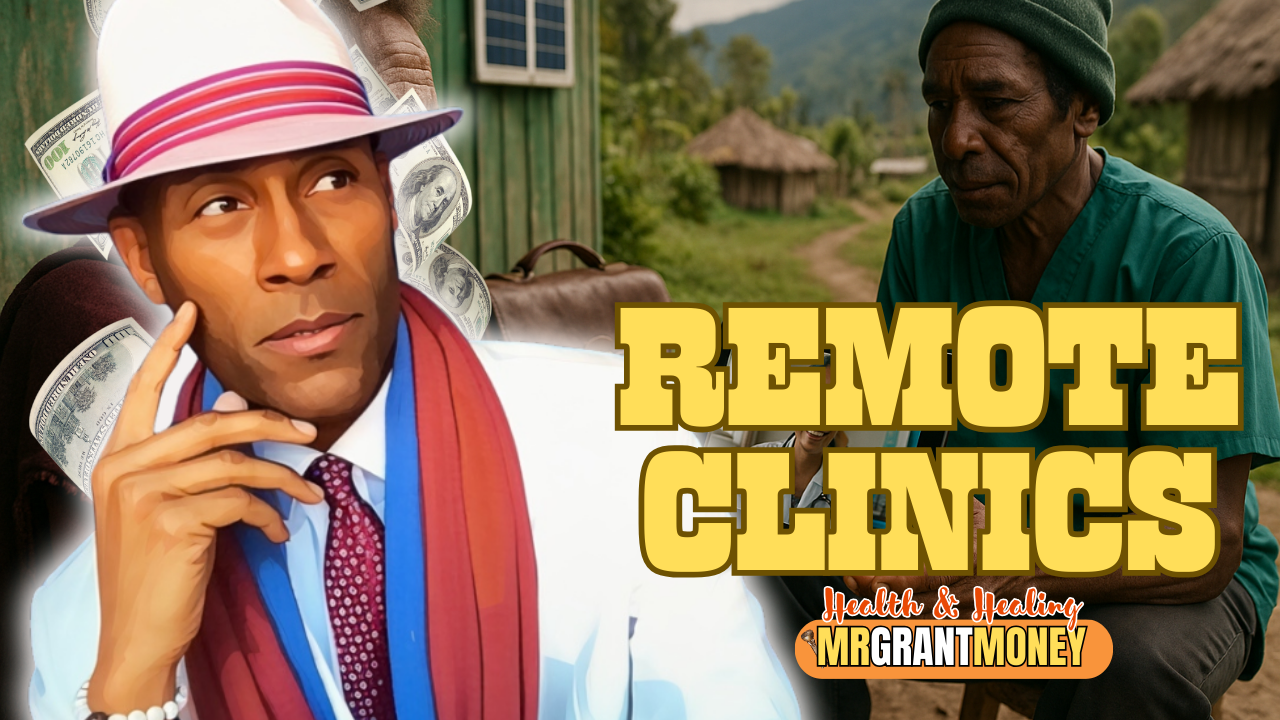The Tech Grant: Mr. Grant Money & The Innovator Building the Future

 Wednesday, June 18 – Berlin, Germany 🇩🇪
Wednesday, June 18 – Berlin, Germany 🇩🇪
Some ideas are like satellites—brilliant, far-reaching, and nearly impossible to launch without the right fuel.
That’s how Laila Weiss described hers.
A software engineer by training and an AI ethicist by passion, she’d spent the last two years quietly developing a decentralized, privacy-first data model for predictive analytics in public health. A system built not to exploit personal data—but to protect it. To forecast epidemics, track health trends, and allocate resources—without ever violating user trust.
Her friends called it ambitious.
Her mentors called it “ahead of its time.”
Investors called it:
“Too early. Too academic. Not enough traction.”
Which was code for:
You don’t have a prototype yet. Come back when you’ve risked it all.
But Laila couldn’t risk it all.
She had rent. Student loans. A freelance contract that barely covered groceries.
She didn’t need millions.
She just needed a launchpad.
Berlin’s Startup Scene Had Buzz. She Needed Backing.
Berlin pulsed with sustainability pitches, fintech sprints, and Web3 whiteboards.
But Laila didn’t want hype. She wanted infrastructure.
Foundations loved her idea—until they saw the budget.
Accelerators praised her résumé—until she refused to pivot to a SaaS model.
Grant databases overwhelmed her. EU pages were dense. Deadlines were buried.
She was ready to shelve the project “for a better time” when someone handed her a name over coffee at Factory Berlin.
“You want real support?” they said. “Talk to the guy in the tailored suit with a briefcase full of funding codes. Name’s weird. Results aren’t.”
The Precision of a Strategist in a Storm
He arrived exactly on time.
Mid-morning. Glass building. Rain streaking down Kreuzberg windows.
Three-piece charcoal suit. Steel-blue tie. Tablet already open to a spreadsheet titled:
L. Weiss – R&D Grant Matrix
“You’re building an AI model that makes health data safer, not more invasive,” Mr. Grant Money said, sliding into the seat across from her.
“I don’t want you pitching VCs who need five-year exits. I want you talking to the people funding the future.”
Laila blinked.
“So you believe in this?”
“I believe in public-good innovation,” he said. “And I’ve helped secure over €500 million in grants for founders who the market ignored—but history remembered.”
Where the Deep Tech Grant Money Actually Lives
What followed was pure precision.
Mr. Grant Money laid out a path few founders ever see:
-
EIC Pathfinder (EU): funding radically new, early-stage technologies. “They’re literally built for ideas like yours,” he said. “No revenue? No problem. They want impact.”
-
ZIM (Germany’s Zentrales Innovationsprogramm Mittelstand): offers R&D funding for SMEs and individuals in high-risk, high-tech innovation—especially AI and health-related projects.
-
Robert Bosch Stiftung’s Science for Society Fund: supporting ethical tech and scalable social solutions through philanthropic grants.
-
Berlin’s Civic Tech Microgrants: public-private seed funding for early prototypes in digital sovereignty and public infrastructure.
“They don’t need you to commercialize fast,” Mr. Grant Money said.
“They need you to be brilliant—and measurable.”
From Whiteboard to Working Demo
Laila didn’t apply alone.
Over the next eight weeks:
-
They scoped milestones.
-
Defined privacy and cost-saving metrics.
-
Translated her technical vision into funding language: accessible, outcomes-driven, socially rooted.
Mr. Grant Money brought in a research partner from a local health institute to co-author the grant narrative. He introduced her to an R&D advisor to stress-test the architecture. And he made one phone call that got her an LOI from a regional hospital willing to test her prototype in 2025.
Then it happened.
€150,000 from ZIM.
No dilution. No investor approval process.
Just momentum.
Six months later, Laila had:
-
A product name
-
A small team
-
A pilot site
-
Two more grant approvals pending
And most importantly—ownership.
Mr. Grant Money Doesn’t Just Fund Ideas. He Funds Infrastructure.
Because the future doesn’t start with flashy decks.
It starts with quiet brilliance—and someone who knows where the right money lives.
Laila didn’t change the world overnight.
She built the foundation for change—because someone finally handed her the fuel to leave the launchpad.
And Mr. Grant Money?
He doesn’t chase hype.
He funds systems.
And if you're building the future—
He’ll make sure it doesn’t stay trapped in a Google Doc.
✅ Discussion Questions
-
What makes early-stage deep tech projects uniquely challenging to fund through traditional investors or venture capital?
How can grant funding become a more normalized alternative? -
How can innovators identify grant programs aligned with public-good technology or non-commercial outcomes?
What tools or directories would help founders access this support? -
Why is it important to translate technical vision into measurable impact language when applying for R&D grants?
What metrics resonate most with funders? -
What role do European innovation grants (like EIC Pathfinder or ZIM) play in accelerating ideas that are “too early” for private funding?
How do they fill systemic gaps in tech development? -
How can founders balance staying true to their mission while navigating the structure of complex, multi-tiered funding programs?
What kind of mentorship or grant navigation strategy helps?
📚 More Resources & Related Topics
🔎 Learn More by Topic
📌 Philanthropy Blog 📌 Grant Acquisition Blog 📌 Entrepreneurship Blog 📌 Financial Literacy Blog 📌 Scholarship Blog
📅 Seasonal & Inspirational Stories
📌 Thankfulness Stories 📌 Holiday Stories 📌 New Year Stories 📌 Halloween Stories 📌 Valentine’s Stories
🛍️ Shop, Stream, Connect
📌 Mr. Grant Money Store 📌 Mr. Grant Money Music 📌 YouTube Channel
💼 Professional Tools & Networks
📌 Grant Central USA 📌 Grant Writers Association
🔓 UNLOCK EXCLUSIVE TIPS WITH MR. GRANT MONEY!
We hate SPAM. We will never sell your information, for any reason.
















